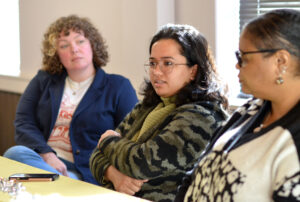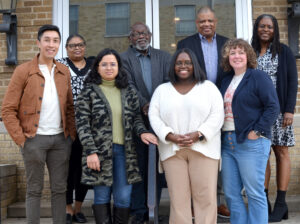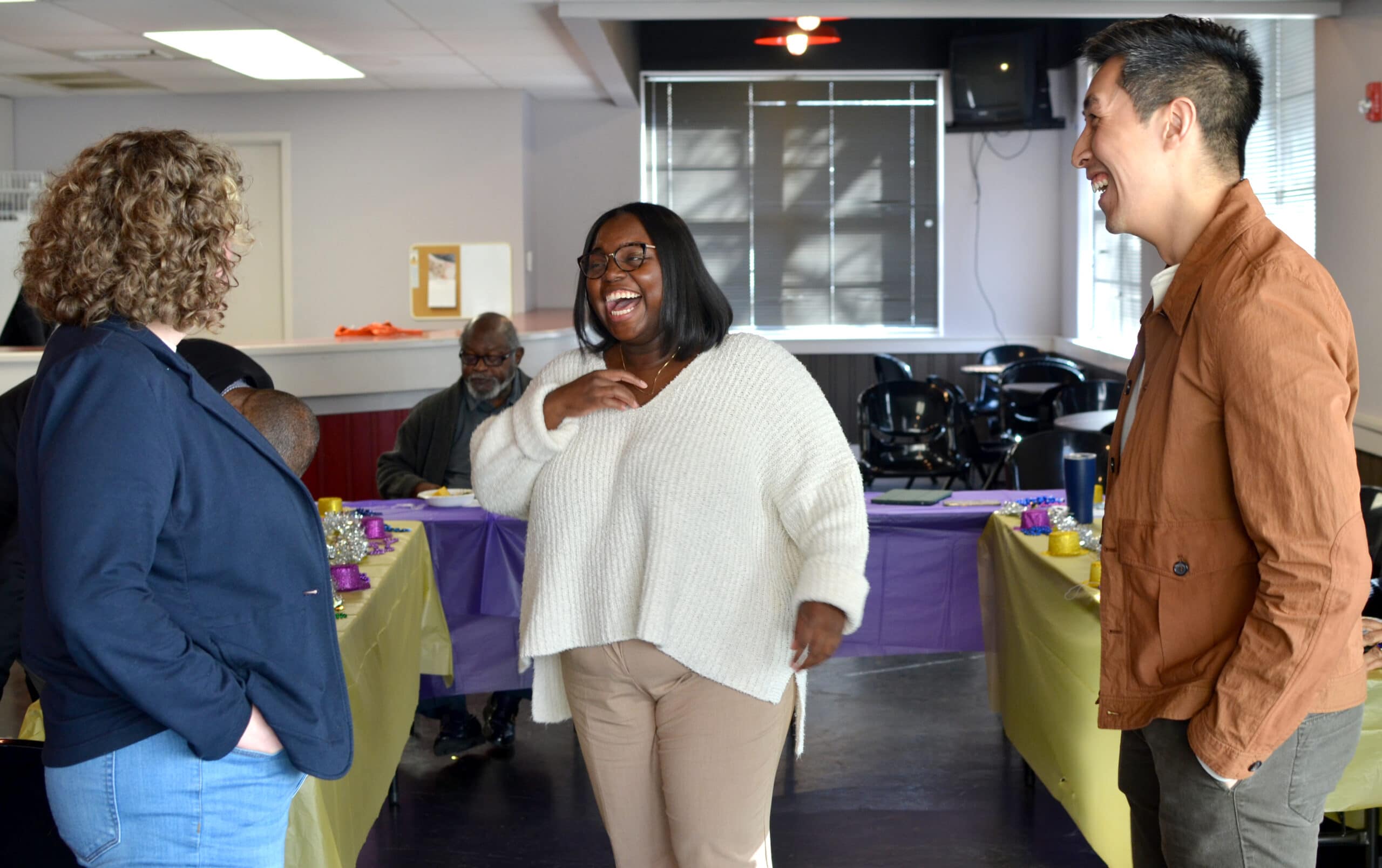Students Learn About How Community Partnerships Enhance Relevancy of Research
| Three doctoral students from the University of Arkansas for Medical Sciences (UAMS) Fay W. Boozman College of Public Health met with community members from various Little Rock civic and faith-based organizations during a special forum at Second Baptist Church in downtown Little Rock.
Participating in the forum were students Alice Gardner, Rachel Hale and Ishu Karki, all of whom are in the Community-Based Program Design course with an emphasis in community-based participatory research (CBPR).
In collaboration with the meeting, the students conducted a windshield, or observational, survey in downtown Little Rock. During the survey, the students drove around the area to identify resources and the general state of the community.
Led by Keneshia Bryant-Moore Ph.D., APRN, professor in the college’s Department of Health Behavior and Health Education, the activities prioritized community engagement to develop relevant public health programs and research, in addition to the best ways to form sustainable community partnerships.
“Connecting with the community presenters drove home the importance of talking to the people that you’re trying to engage with,” Gardner said. “Also, through exploring a particular area of downtown Little Rock, it highlighted the community’s needs and assets that we could not see as outsiders looking in.”
Karki lauded the opportunity to network with the presenters. Due to the conversations, she has a better understanding of the different aspects of Little Rock, what’s needed and the available resources.

Ishu Karki (middle), a student in the Community-Based Program Design course, speaks during a Community-Based Participatory Research forum.
“The meeting helped me identify the ways that I can partner with the community in my research work,” she said. “It helped me learn about Little Rock and generate numerous research ideas.”
Karki also referenced that hearing the real-life occurrences of the community partners will remain a positive influence in her life.
“I learned different viewpoints regarding bringing the stakeholders together, group dynamics, challenges of working in a group, and ways to overcome those challenges,” she said. “It will all be helpful for my coursework and to guide my future research. Learning about the CBPR approach has enhanced my knowledge and motivated me to get involved in a similar program as a researcher.”
Hale appreciated the emphasis placed on identifying the overlooked social services and vulnerable communities within downtown Little Rock.
“The forum showcased why community-engaged research is important in developing research questions that lead to relevant and sustainable interventions,” she stated. “This CBPR course — and the community meeting — have provided real-life examples that provide insight into conducting community-engaged research.”

The participants of the Community-Based Participatory Research meeting pose for a group photo outside of Second Baptist Church of downtown Little Rock.
“What I took away from the meeting was how much we don’t know when looking at secondary data or coming from a different lived experience regarding the understanding of the strengths and needs of a community,” Hale said.
Gardner mentioned that the event further emphasized the importance of having empathy for the beliefs and life developments of individuals in need of assistance.
“The community members are the experts,” she said. “We need their expertise to understand where and how we can help make changes to improve health outcomes.
“I plan to use the information from the forum to guide how I include and engage community members in conversations about their community and how to integrate the work that other organizations have done. To change the environment, we must bring community leaders, health care organizations and state and local officials to the table.”
